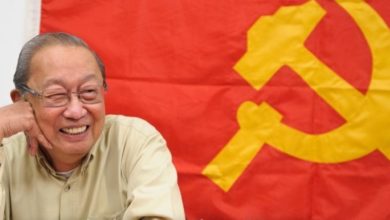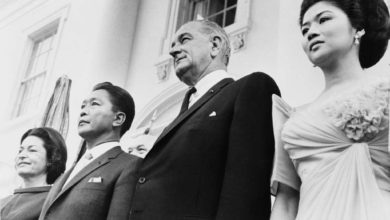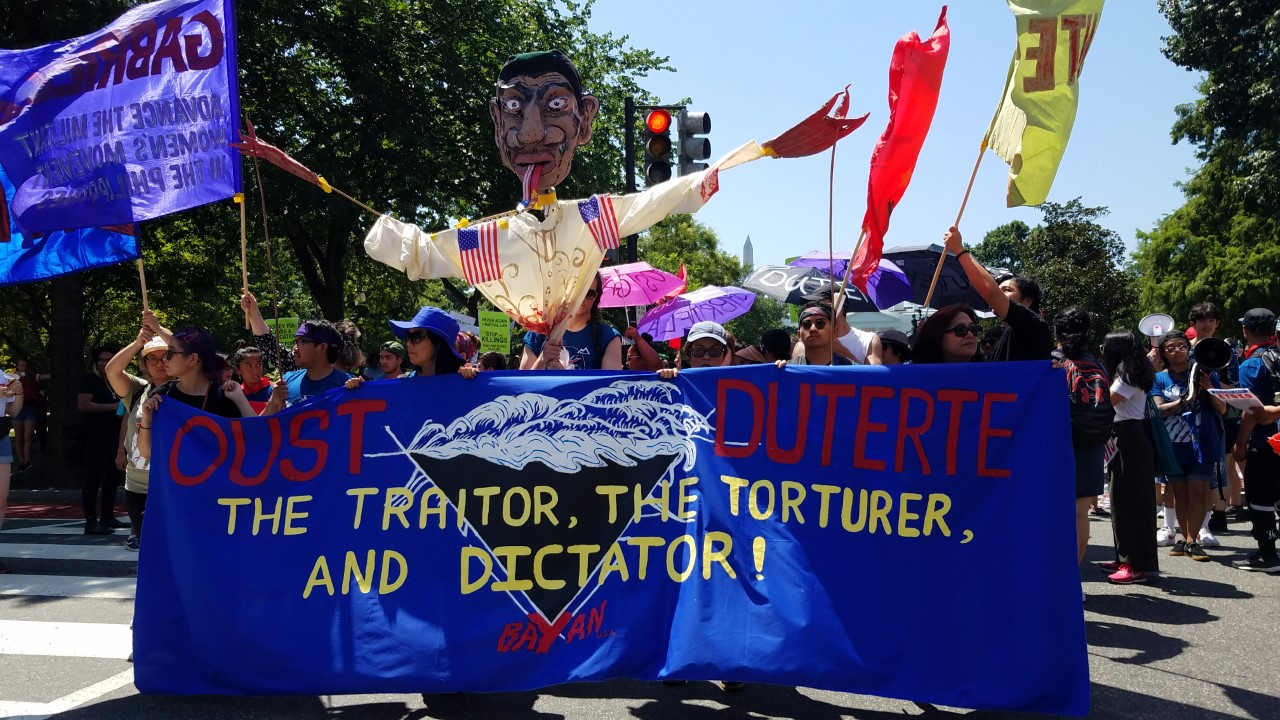Filipinos protest corrupt Arroyo government
 Photo: Reuters/Erik De Castro |
Rumors of a possible military coup circulated when a power struggle among the bourgeois ruling parties in the Philippines broke out into the open. In June, proof surfaced that President Gloria Macapagal Arroyo stole the 2004 national elections through massive fraud and vote-rigging. The proof emerged from wiretapped telephone conversations between Arroyo and a top-polling official.
Immediately after the 2004 elections, opposition senators accepted Arroyo’s mandate, although there were murmurs of controversy. Various people’s organizations, however, organized protests against Arroyo and the existing power structure in the Philippines.
When the latest allegations surfaced, 5,000 protestors flooded the streets of Manila calling for Arroyo to resign. The organizers described the protest as a “Parliament of the Streets.” The “National Day of Protest for Truth and Justice” was largely organized by the mass-based, progressive organization Bayan Muna.
Arroyo has apologized for committing electoral fraud but declined to step down, which is unacceptable to many. Professor Jose Maria Sison, chief political consultant of the National Democratic Front of the Philippines, said that Arroyo’s apology was “insincere and worthless because it is not accompanied by her resignation.”
Pakistani unionists fight privatization
 Photo: Reuters/Zahid Hussein |
The Pakistani government recently ordered military troops to suppress workers’ opposition to the partial privatization of the country’s largest telecommunications firm—Pakistan Telecommunication Co. Ltd.
The sale to Etisalat, a company from the United Arab Emirates, was completed on June 18 for $2.59 billion. This was twice the expected amount. Leaders of the union representing the telecommunications workers said that the military and police arrested approximately 400 workers who protested at the firm. Pakistan has been on a privatization spree, selling $1.76 billion worth of former state assets in the last three years.
After the announced privatization of PTCL, the union called a strike in protest. The military and police broke up the strike, arresting 750 workers. The 55,000-member PCTL union had previously stalled the government’s privatization plans, but a series of demonstrations in cities across the country were met with harsh government repression. The government eventually threatened to shut the PCTL down before completing the partial sell-off.
Pro-U.S. ‘rebels’ in Sudan attack government
 Photo: Afp Photo/Steve Forrest |
Some of the armed rebel factions involved in the conflict in Sudan’s Darfur region have moved east to launch a surprise military campaign aimed at further destabilizing the Sudanese government.
Most of the fighting, which began on June 19, took place near the town of Tokar in northeastern Sudan, by the border with Eritrea. The strife comes at a difficult time. The Sudanese government recently signed a peace treaty with the National Democratic Alliance—one of the largest opposition coalitions.
The Justice and Equality Movement announced its involvement in the campaign in eastern Sudan. The group does not want peace. A JEM leader voiced the mercenary army’s true intentions: “Even if there’s an agreement on Darfur, we will continue the struggle somewhere else.”
The JEM is working with the Eastern Front, a new organization created by the merger of two armed rebel groups that are officially part of the NDA. Despite the government’s peace treaty with the NDA, a spokesman for the Eastern Front said, “we have had no indication of peace talks to come, so we have started this military plan.”
Since at least 1996, the U.S. government has supplied the NDA and its allies with tens of millions of dollars in military equipment and aid. The United States wants the NDA—a pro-imperialist force—to replace the current government in Khartoum.
FARC-EP continues the struggle
The FARC-EP’s most recent military operations have delivered heavy blows to the hard-right government of Alvaro Uribe in Colombia. Its June 26 attacks killed 19 government soldiers in the Putumayo area of Colombia near Ecuador. Six more government soldiers were killed in the northeast region between the cities of Ocana and Sardinita near the Venezuelan border. The continued strength of the FARC-EP’s resistance has exposed the futility of Uribe’s purported “war on terror,” which the government is carrying out with the full backing and support of the United States.
The Colombian government has responded to the operations by mobilizing a large counteroffensive with more than 1,000 troops, using U.S. supplied helicopter gunships to indiscriminately hunt down “insurgents” all over the southwest part of the country.





